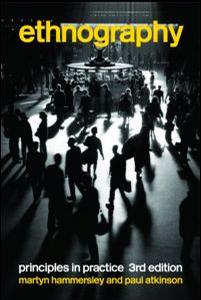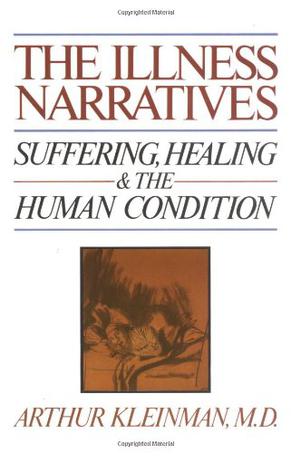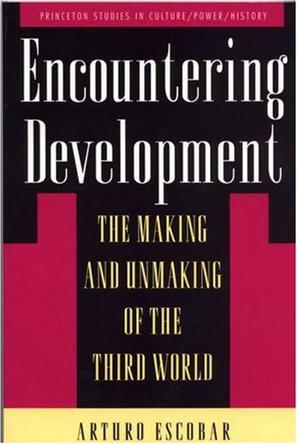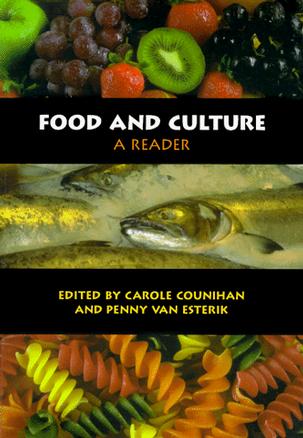-

Ethnography
Thoroughly updated and substantially rewritten, this edition of this popular textbook is now even more relevant and useful for students and researchers. New material includes: chapters on the use of visual research methods, recent advances in feminist theory, new regimes of research regulation and a new conclusion. Ethnography provides a systematic and coherent account of ethnographic principles and practice. Rejecting the over-simplified contrast between 'positivism' and 'naturalism', but also questioning more recent critiques of these positions, the authors argue that ethnography is best understood as a reflexive process. Above all, what this means is that we must recognise that social research is part of the world that it studies. From an outline of the principle of reflexivity in chapter one, the authors go on to discuss and exemplify the main features of ethnographic work: the selection and sampling of cases the problems of access observation and interviewing recording and filing data the process of data analysis and writing research reports. There is also consideration of the ethical issues surrounding ethnographic research. Throughout, the discussion draws on a wide range of illustrative material from classic and more recent studies within a global context. -

The Illness Narratives
A psychiatrist at Harvard Medical School, Kleinman vitalizes his book with quotations from patients and members of the healing professions. This is a scholarly study but accessible to a lay audience. Writing of "suffering, healing and the human condition," the author observes the dichotomy between technological advances in medicine and the actual treatment of the ill, handicapped and dying. Profoundly moving reports illuminate the deprived lives of social outcasts, shunned and stigmatized, whose needs are not met by the medical community. There are also instructive descriptions of how an empathetic doctor can help "humans" (not cases) to regain health or, in extremis, die a "good death." Kleinman argues persuasively the need to reform today's medical-care system to more fully serve humanity. -

Encountering Development
How did the industrialized nations of North America and Europe come to be seen as the appropriate models for post-World War II societies in Asia, Africa, and Latin America? How did the postwar discourse on development actually create the so-called Third World? And what will happen when development ideology collapses? To answer these questions, Arturo Escobar shows how development policies became mechanisms of control that were just as pervasive and effective as their colonial counterparts. The development apparatus generated categories powerful enough to shape the thinking even of its occasional critics while poverty and hunger became widespread. 'Development' was not even partially 'deconstructed' until the 1980s, when new tools for analyzing the representation of social reality were applied to specific 'Third World' cases. Here Escobar deploys these new techniques in a provocative analysis of development discourse and practice in general, concluding with a discussion of alternative visions for a postdevelopment era. Escobar emphasizes the role of economists in development discourse - his case study of Colombia demonstrates that the economization of food resulted in ambitious plans, and more hunger. To depict the production of knowledge and power in other development fields, the author shows how peasants, women, and nature became objects of knowledge and targets of power under the 'gaze of experts'. -

Food and Culture
Food touches everything important to people: it marks social differences and strengthens social bonds. Common to all peoples, yet it can signify very different things from table to table. Food and Culture takes a global look at the social, symbolic and political-economic role of food. The stellar contributors to this reader examine some of the meanings of food and eating across cultures, with particular attention to how men and women define themselves differently through their foodways. Articles reveal how food habits and beliefs both present a microcosm of any culture and also contribute to our understanding of human behavior. Crossing many disciplinary boundaries, this reader includes the perspectives of anthropology, history, psychology, philosophy, and sociology. The reader starts out by illustrating food's ability to convey symbolic meaning and communicates about a wide range of subjects. Next, the articles draw attention to how the practices of giving, receiving and refusing food initiate, solidify or rupture social bonds. Essays exploring the relation between body image, eating and sexuality in different societies give particular attention to the special and contradictory relation between women and food. Also demonstrated is the relation between the commodification of food, food industries, political power and colonial dominance. Contributors include: Roland Barthes, Susan Bordo, Carolyn Walker Bynum, M.F.K. Fisher, Anna Freud, Jack Goody, Claude Levi-Strauss, Margaret Mead, and Elisa J. Sobo. -

In the Name of Harmony and Prosperity
Offers an analysis of the dynamics of Taiwan's export-oriented industrialization, particularly its impact on women and other workers. -

Chinese Religiosities
The long twentieth century in China and Taiwan has seen both a dramatic process of state-driven secularization and modernization and a vigorous revival of contemporary religious life. "Chinese Religiosities" explores the often vexed relationship between the modern Chinese state and religious practice. The essays in this comprehensive, multidisciplinary collection cover a wide range of traditions, including Buddhism, Daoism, Islam, Confucianism, Protestantism, Falungong, popular religion, and redemptive societies. Contributors include: Jose Cabezon, Prasenjit Duara, Ryan Dunch, Dru C. Gladney, Vincent Goossaert, Ji Zhe, Ya-pei Kuo, Richard Madsen, Rebecca Nedostup, David Palmer, Benjamin Penny, and Mayfair Mei-hui Yang.